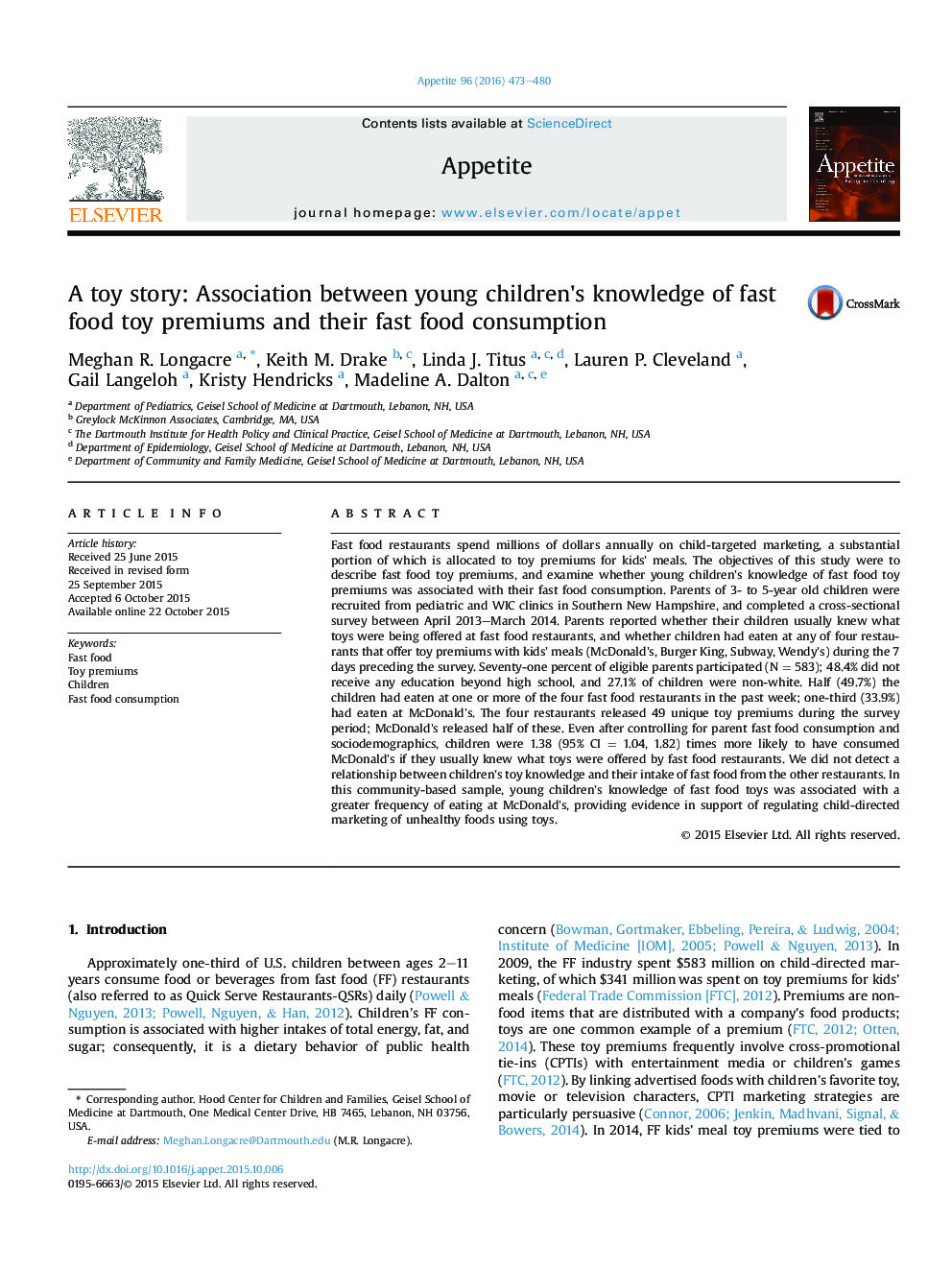| کد مقاله | کد نشریه | سال انتشار | مقاله انگلیسی | نسخه تمام متن |
|---|---|---|---|---|
| 7308385 | 1475384 | 2016 | 8 صفحه PDF | دانلود رایگان |
عنوان انگلیسی مقاله ISI
A toy story: Association between young children's knowledge of fast food toy premiums and their fast food consumption
ترجمه فارسی عنوان
داستان اسباب بازی: ارتباط دانش اطفال با اسباب بازی های فست فود و مصرف غذاهای سریع آنها
دانلود مقاله + سفارش ترجمه
دانلود مقاله ISI انگلیسی
رایگان برای ایرانیان
کلمات کلیدی
فست فود، حق امتیاز اسباب بازی، فرزندان، مصرف سریع غذا،
موضوعات مرتبط
علوم زیستی و بیوفناوری
علوم کشاورزی و بیولوژیک
دانش تغذیه
چکیده انگلیسی
Fast food restaurants spend millions of dollars annually on child-targeted marketing, a substantial portion of which is allocated to toy premiums for kids' meals. The objectives of this study were to describe fast food toy premiums, and examine whether young children's knowledge of fast food toy premiums was associated with their fast food consumption. Parents of 3- to 5-year old children were recruited from pediatric and WIC clinics in Southern New Hampshire, and completed a cross-sectional survey between April 2013-March 2014. Parents reported whether their children usually knew what toys were being offered at fast food restaurants, and whether children had eaten at any of four restaurants that offer toy premiums with kids' meals (McDonald's, Burger King, Subway, Wendy's) during the 7 days preceding the survey. Seventy-one percent of eligible parents participated (NÂ =Â 583); 48.4% did not receive any education beyond high school, and 27.1% of children were non-white. Half (49.7%) the children had eaten at one or more of the four fast food restaurants in the past week; one-third (33.9%) had eaten at McDonald's. The four restaurants released 49 unique toy premiums during the survey period; McDonald's released half of these. Even after controlling for parent fast food consumption and sociodemographics, children were 1.38 (95% CIÂ =Â 1.04, 1.82) times more likely to have consumed McDonald's if they usually knew what toys were offered by fast food restaurants. We did not detect a relationship between children's toy knowledge and their intake of fast food from the other restaurants. In this community-based sample, young children's knowledge of fast food toys was associated with a greater frequency of eating at McDonald's, providing evidence in support of regulating child-directed marketing of unhealthy foods using toys.
ناشر
Database: Elsevier - ScienceDirect (ساینس دایرکت)
Journal: Appetite - Volume 96, 1 January 2016, Pages 473-480
Journal: Appetite - Volume 96, 1 January 2016, Pages 473-480
نویسندگان
Meghan R. Longacre, Keith M. Drake, Linda J. Titus, Lauren P. Cleveland, Gail Langeloh, Kristy Hendricks, Madeline A. Dalton,
